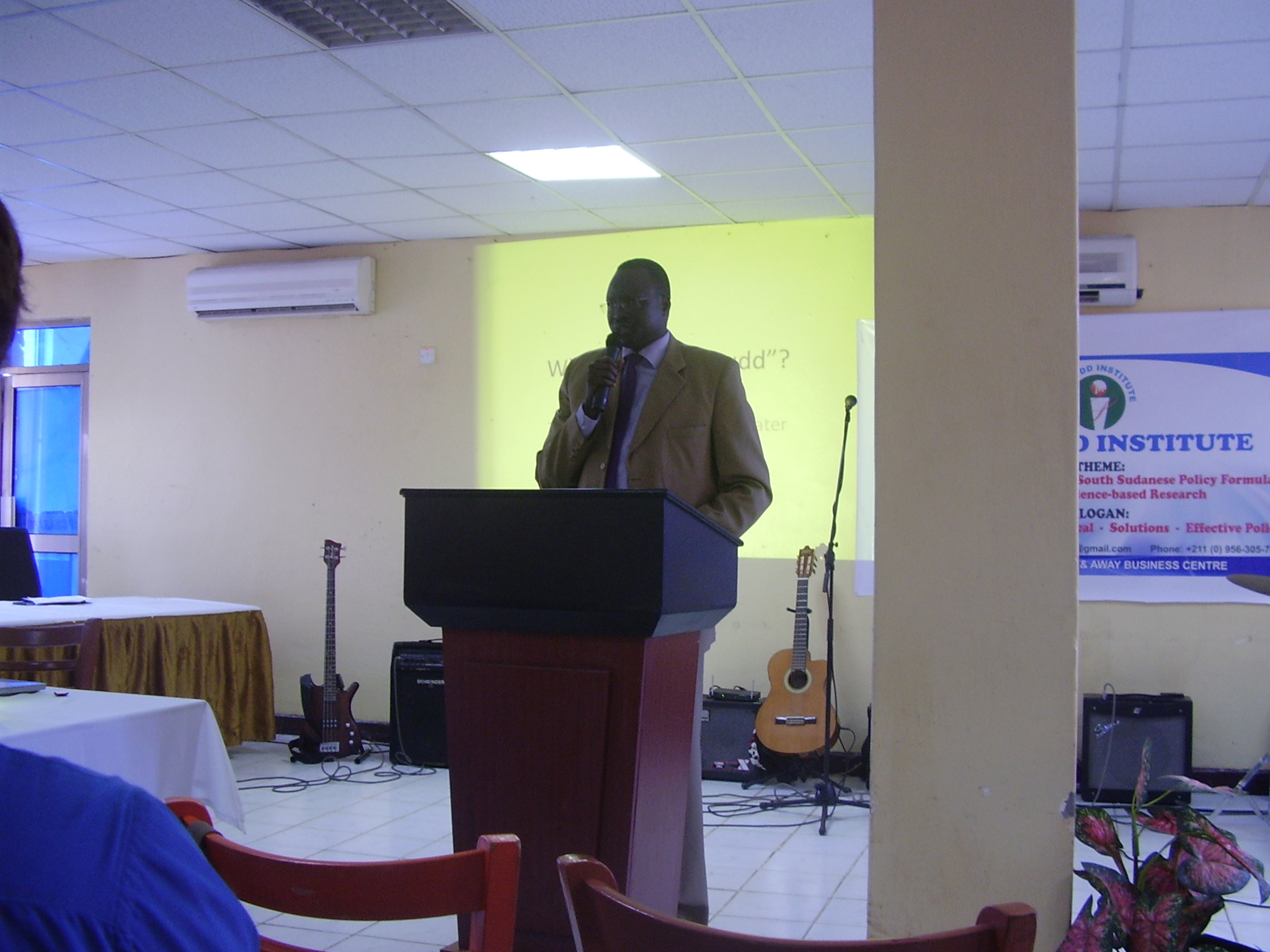South Sudan experiencing “immeasurable threats” to its existence
By Ngor Arol Garang
May 14, 2012 (JUBA) – South Sudan’s deputy defence minister said Saturday that his country was experiencing an “immeasurable threat” from Sudan, which was to be addressed by establishing good bilateral ties with countries in the region.

Juba accused Khartoum of using the oil-rich area as a springboard to stage attacks on Unity State in South Sudan. Despite a 2005 peace deal giving the two sides six years to resolve numerous issues, when South Sudan became independent many issues including oil, border demarcation, ownership of disputed areas, citizenship, national assets and security where still up in the air.
Speaking at the opening of the Sudd Research Institute on Saturday 12 May, Majak D’Agoot, the country’s Deputy Defence Minister said disputes of over post-secession issues have created a relationship of mutual vulnerability rather than mutual benefit.
South Sudan’s decision to stop oil-production earlier this year has seriously damaged both economies. Juba halted exporting its oil through Sudan, accusing Khartoum of illegally siphoning Southern crude. Khartoum says the confiscated oil was payment for unpaid fees.
The senior government figure described Khartoum’s demand for $36 for each barrel exported through it’s territory as “unfair” and “ludicrous”. Juba says it is only willing to play less than $1 per barrel.
South Sudan took with it 75% of oil production at independence and before the stoppage relied on oil for 98% of the government’s budget. Khartoum is trying to fill the huge blackhole left by its assumption that it would receive $36 for each of the 350,000 bpd South Sudan exported out of Port Sudan on the Red Sea.
D’Agoot said that: “The mutual viability of the states must stem from the principle of mutual respect and equality.”
The United Nations Security Council (UNSC) resolution of May 2 ordered both sides to return to negotiations to resolve issues over oil, borders and security within three months. Juba has accepted the resolution, which also says that Juba must stop aiding rebels in Sudanese territory.
Juba denies supporting Sudanese rebels and D’Agoot said that “there is a need to approach to UNSC resolution with care in order to avoid any possible pitfalls that may endanger national interests.”
The second top official in South Sudan’s defence ministry was addressing an audience of university officials, senior members of the government and representatives of civil society organisations.
“Our country is experiencing challenges of immeasurable magnitude including existential threats to its foundations”, he said.
D’Agoot said that the road towards establishing a vibrant and stable nation-state was daunting and there was a need to revise expectations in order to be more realistic and rational.
The senior member of the country’s governing Sudan People’s Liberation Movement (SPLM) commended the capability of the army to defend the country and said that recent military clashes along the border have imposed military parity.
D’Agoot further suggested that to begin the process of addressing challenges facing the country one needs to clearly define “strategic national interest including relying on good relations” with its neigbours so it can find other routes to export its oil
The deputy defence minister listed eight main threats against the world’s youngest nation:
- Threat of direct military confrontation with Khartoum and its proxies (Militia and LRA)
- Post independent issues including the status of Abyei, border demarcation, oil export, debt, Sudanese pastoralists entering South Sudan and South Sudanese in Sudan.
- Economic challenges resulting from recent shutdown of oil operations and dependence on one source of revenue, being a land locked country and lack of infrastructure.
- Challenges of nation building and state formation; dysfunctional institutions, decapitated press and civil society, lack of respect for the constitution, provision and maintenance of public safety and security, gaps in diplomacy, poor management of public resources and lack of accountability and transparency amongst others.
- Weak political community, that is, weak political parties, coupled with unfortunate deepening of ethno-regional sectarian politics.
- Ethnic violence; ethnic rivalry, conflict over resources, cattle rustling etc.
- Border and immigration issues; influx of refugees and spillover of transnational crimes such as proliferation of small arms and a fear of spread of international terrorism.
- Lack of rigorous policy analysis aimed at improving strategic policy design and decision making, service delivery and creation of equitable resource distribution formulae and matrices that ensure a certain level of parity among the country’s regions.
(ST)
